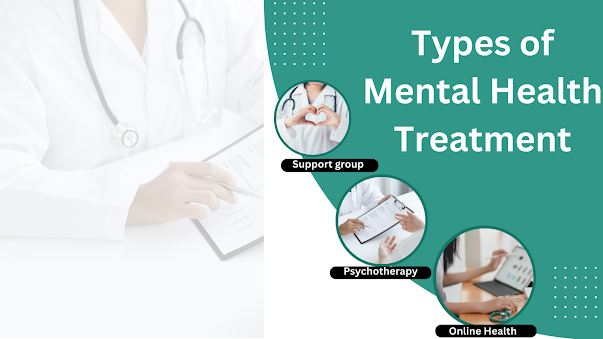What You Should Know About Antidepressant Drugs?
Depression, also referred to as major depressive disorder, is a mental condition that has an impact on your thoughts, feelings, and behavior. It may result in melancholy, pessimism, and a lack of interest in once-fun activities.
Physical symptoms that make it difficult for you to operate at home and at work are another side effect of depression. Depression that is left untreated can make life unfulfilling and increase your risk of suicide.
Despite being a significant mental health disease, depression can be treated. From moderate to severe, depression symptoms might vary from person to person. When used in conjunction with expert counseling or Depression treatment center, using mental health drugs for depression can help you feel more like yourself. However, if your depression symptoms are minor, lifestyle adjustments and counseling may be all you need.
For more information on how depression is treated and when you might need depression medication, please keep reading.
How is depression treated with antidepressants?
Antidepressants are thought to function by raising the amounts of specific brain chemicals, according to scientists and medical professionals. Serotonin, norepinephrine, and dopamine are some of these neurotransmitters. They are directly related to mood and feelings. Pain signals are also impacted by neurotransmitters. Because of this, some antidepressant drugs can effectively treat chronic pain.
Notably, despite the fact that antidepressant medications can successfully cure depression symptoms, they do not target the underlying cause. Because of this, it's crucial to combine talk therapy, such as cognitive-behavioral therapy, with antidepressants. This can be given as family therapy, individual treatment, or group therapy.
How can I tell if taking Antidepressants would be Beneficial for me?
According to experts, those with moderate to severe depression benefit from taking an antidepressant. Multiple treatments have been proven to ease symptoms in such patients more successfully than placebos (fake medications).
A mental health expert should be consulted before deciding whether or not to take depression medication. Prescription pharmaceuticals are required to access mental health medications; they are not sold over the counter and must be obtained with a doctor's prescription. Describe your symptoms openly to your doctor. They will assist you in determining whether you require oral antidepressants or merely therapy and lifestyle modifications.
Know that taking antidepressants is not something to be embarrassed about if your doctor advises doing so. Depression is not a sign of weakness or a deficiency in character; it is a psychiatric condition. The majority of widely given drugs do not alter who you are. Instead, they support you in reclaiming your identity and returning to your regular routine.
Antidepressants might nevertheless result in negative effects, just like all medications. If this happens, discuss with your doctor whether to reduce the dose or try an alternative medication.
Antidepressant drugs are useful in treating the symptoms of depression. You might be tempted to forego taking an antidepressant as soon as you start to feel better as a result of this. However, if you stop receiving medication too soon, your depressive symptoms may return.
Although it may seem overwhelming to consider taking mental health meds for an extended period of time, you should realize that many people are able to quit taking antidepressants within a few months.
If you wish to try to stop taking antidepressants, talk to your doctor. Never stop using these medications suddenly (don't stop using them all at once). Antidepressant discontinuation syndrome may result from doing so. You may feel lethargy, fatigue, nausea, vomiting, headache, dizziness, sweating, difficulty sleeping, vivid dreams, and other withdrawal symptoms.
Which antidepressant is best for me?
There is no one drug that works best to treat depression and anxiety problems. You might not see success with the first medication you try. It involves a lot of trial and error. It follows that it's possible that you'll need to test a few different medications before you find the one that works best for you and has the fewest adverse effects.
Keep in mind that the majority of antidepressants take time to work. If you don't feel better in the first few weeks of treatment, don't be discouraged. Most antidepressants, especially more recent antidepressants, take one to three weeks to relieve serious depression. Before you observe a definite improvement in your depressive symptoms.
Keep in mind that depression that is treated just with antidepressants has a higher risk of returning than depression that is treated with both antidepressants and counseling.
Conclusion
If you stopped taking your antidepressant medication on your own, discuss this with your doctor. Was the medication, for instance, creating an unpleasant side effect? Was the price too high? By changing your dosage or recommending an alternative antidepressant, your doctor can help. Speak with your doctor if you're taking a lower dosage of your medication than your doctor prescribed and you're exhibiting antidepressant discontinuation syndrome symptoms. Before entirely weaning your body from the medicine, you might need to take a higher dosage.
Take your Medication therapy management exactly as prescribed by your doctor to prevent antidepressant discontinuation syndrome from occurring again. Speak with your doctor first if you wish to stop taking it. It doesn't always indicate you're addicted if you find it difficult to abruptly stop taking your medication. Often, it takes some time for your body to acclimatise to reduced doses of the medication. Because of this, your doctor might advise weaning off an antidepressant rather than stopping it cold turkey.


Comments
Post a Comment